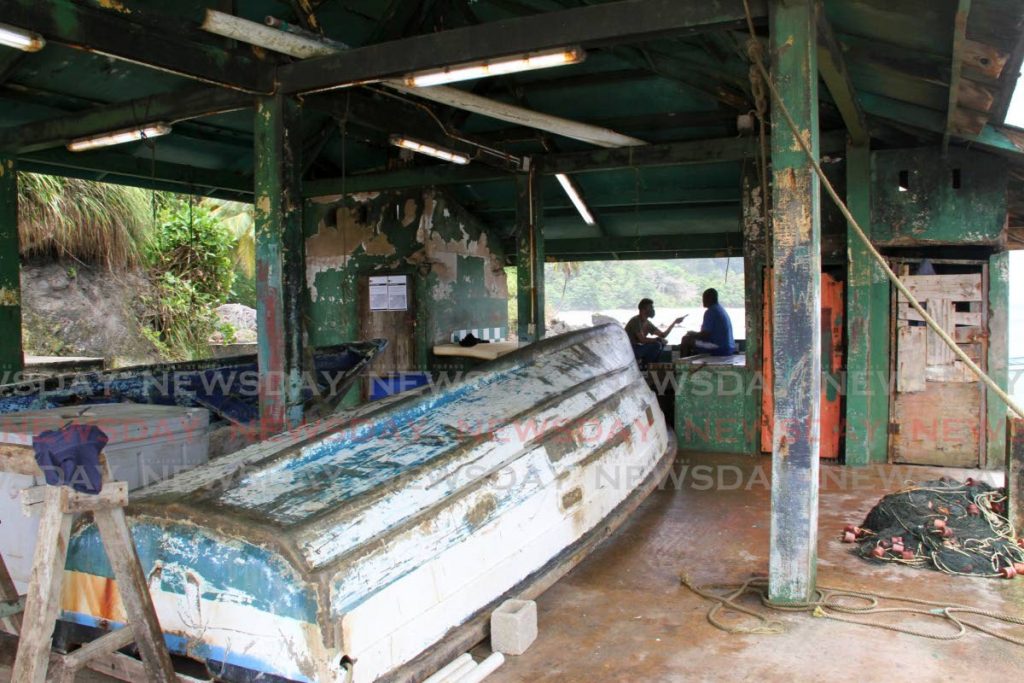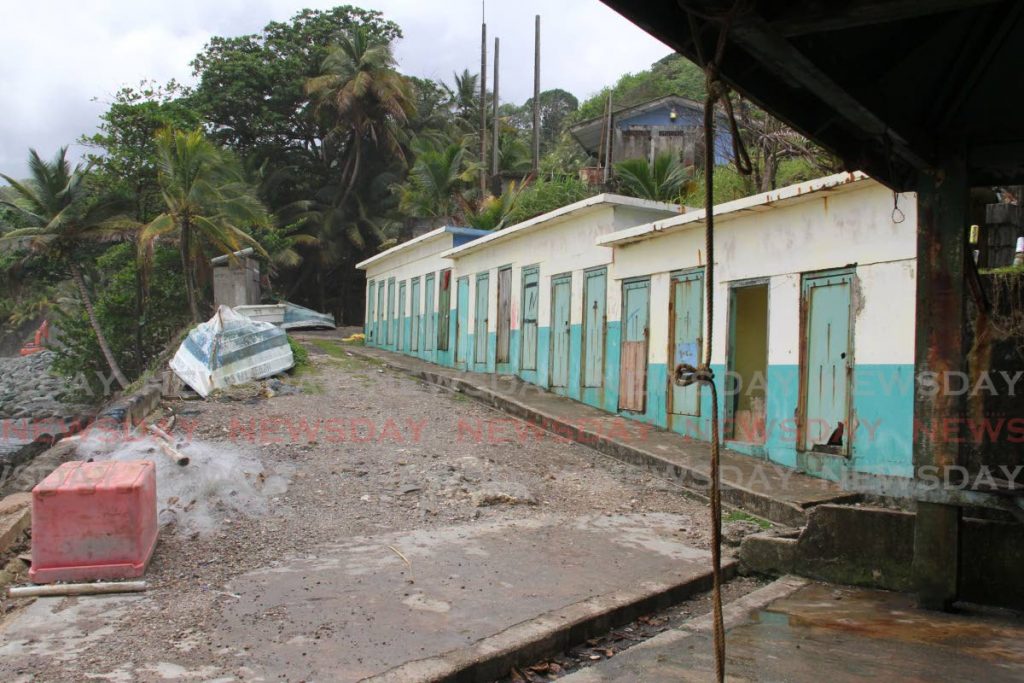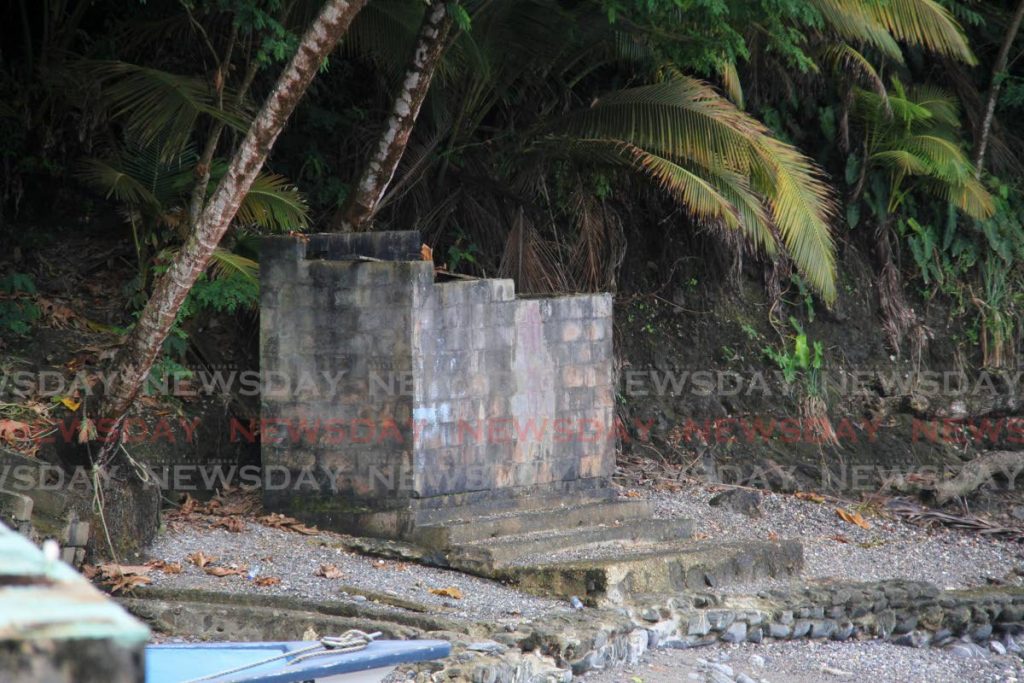How an upgrade of fishing depot can save Matelot

Located along Trinidad’s northeast coast is the village of Matelot which is washed by the waters of the Atlantic Ocean. Found in these waters is an abundance of marine life, which, at least on paper, would make the village an ideal location for the development of the blue economy.
Fishing has been the mainstay economic activity in the village throughout its history. For many of the village’s fisherfolk and their families, it’s a lifeline.
Yet, the village’s fishing depot is in a state of disrepair.
Business Day recently visited Matelot, which gets its name from the French word that means sailor, and spoke with Raymond Murray who has been a fisherman for over 50 years.
Like other fisherfolk, Murray wants those in authority to upgrade the depot’s infrastructure and to invest in fishing.
“The fisheries ministry isn’t doing anything for us really to tell you the gospel truth. Since they built this depot, it has never been maintained," he told Business Day.
“We (reach out to the ministry) on a regular basis and no one comes to visit.”
Apart from the depot’s visibly dilapidated state, Murray said there are other problems; there aren't even any proper toilet facilities. Given the nature of their jobs, Murray said this is a health risk.
For 67-year-old Murray, it’s sad to see the village’s fishing infrastructure being neglected.
He’s always had a passion for fishing. As a young boy, he would observe the elder fishermen ply their trade.
“In the early days, while going to school, I always watched the elderlies fishing and I always wanted to be a fisherman. As a young boy, seeing their catch, I wanted to do like them. Sometimes I’d run away from school to go fishing,” said Murray.

Now, he fears for the future of fishing in the village. He questions how many young people are interested in fishing like he was once was, when he was their age.
“The situation in the village is few (young people) want to get into fishing. I was speaking to a few young guys and they are looking at the catch. When they make their catch, what are they going to do with it?
“Sometimes, when a vendor come from wheresoever, they want to come and give you what they want when we know fish is more expensive than that,” said Murray.
He wants authorities to invest in skills training for younger fisherfolk. While he tries to pass on knowledge, he knows he wouldn’t be around forever.
“There are two guys (in the village) who does net repairing. Only I and a guy whose alias is Tiger. Maybe God has us here still because if we conk out, it has nobody to repair nets. If fisheries or whosoever could open a way and give someone the chance to teach the younger ones the trade so that if we (Tiger and I) pass away they (the younger fishermen) can still help themselves.”
Murray said if the village’s depot was in a better state, there may be a chance that more villagers would invest in fishing.
But even if the depot was upgraded today and younger fisherfolk were given adequate skills training, the state of the roads leading to the relatively isolated community is another problem.
Due to the state of the road, Murray said it's difficult to get gas for the boats.
He said the only gas pump the village had has not been operational for the past 15 years, and claimed it was abandoned by NP as the poor roads made it difficult for the company’s trucks to enter the village to service it.

Fishermen, he said, often have to hire vehicles to go to Cumana to get gas, which is an additional expense.
Covid19, however, has not had much of an effect on the village’s fishing activities.
Regardless of the challenges, Murray continues to enjoy fishing and understands its economic importance to the village. His daily catch includes king fish, mackerel, bonito, and shark, for example.
He sells his catch to customers in the village, other communities along Trinidad’s northeast coast and wholesalers.
“I have my regular customers, who’ll call me and tell me how much fish to bring for them. I will accumulate the number of fish for them in a deep freeze and deliver it for them when I have time.
“That’s usually customers all in Sangre Grande side, Arima and all about. Sangre Grande hospital, the nurses, always support,” said Murray.
When contacted for comment on the state of the village’s fishing depot, the area’s councillor Terry Rondon said he has been lobbying the Ministry of Agriculture, Land and Fisheries for several years to have the facilities upgraded.
Rondon told Business Day, “For the longest while I have been making representation to the ministry for the improvement of the Matelot fishing depot and other fishing depots (in my electoral district). I got assurance that work would commence as soon as possible. That 'soon as possible' came and went; that was about five years ago.

“We need to fix the depots to let these men fish comfortably and this is not happening. They need places to store their nets and engines. The structures are there but we lack maintenance (of them),” said Rondon.
He said fishing facilities in Balandra, Cumana, Grande Riviere, Salybia, San Souci and Toco also face similar issues.
When asked about what efforts he has made at the local government level to alleviate the issues faced by the village’s fishermen, Rondon said there has been an improvement in the state of the roads leading to the community and there has been greater focus on maintaining the roads.
“I ask the fishermen to bear with us again until better can be done. We would love to do it (invest in skills training and other upgrades) in the village, but everything is based on funding. Everything like training, and whatever fishermen want, is based on funding, ” said Rondon.
MP for the area, Roger Monroe, said he is aware of the plight of the fishermen and that he has met with them on several occasions. He's also been in talks with Agriculture Minister Clarence Rambharat, with whom he plans to visit the fishing facilities of all communities along the northeast coast, as they all need infrastructural upgrades.
“I had discussions with the fishermen, and I heard their plight. I would have had communications with the Minister of Agriculture and made plans to visit them. They should see us there pretty soon. We’ll be staying near the communities and taking an entire weekend to visit all the fishing facilities," Monroe said.
"We'll meet with the fishermen to have consultations about how we can go about with the repairs.”
Monroe noted that there are financial constraints on the amount of work that can be done and that fishing facilities would be upgraded on a priority basis.

The ministry's corporate communications manager Dominic Hinds said various levels of refurbishment and infrastructural work has been done on the Matelot facility over the past decade, including the construction of a retaining wall, refurbishment of locker rooms and electrical work.
“The Fisheries Division is cognisant that one of the main concerns of fishers is the need for the construction of a washroom facility on the compound. As a result, in 2016, a contract was awarded to construct such facilities but works had to be prematurely stopped due to land tenure issues,” said Hinds.
Identifying the need to recommence work on the depot, Hinds said the ministry’s fisheries division will conduct electrical upgrades at the depot under the Public Sector Investment Programme (PSIP) for the period 2022-2024.
“At the moment, the necessary measures are being put in place by the ministry and the public will be advised in due course on a date for the resumption of works at the facility,” said Hinds.
The blue economy
The blue economy is a economic concept on how the world's oceans can be a sustainable source of livelihood and development will preserving marine life.
The Center for the Blue Economy says "it is now a widely used term around the world with three related but distinct meanings – the overall contribution of the oceans to economies, the need to address the environmental and ecological sustainability of the oceans, and the ocean economy as a growth opportunity for both developed and developing countries."
In the context of Trinidad and Tobago, Daniel Robinson, research officer, at the Institute of Marine Affairs, said "The blue economy also encourages innovation as we think of ways we can use our oceans."
"In Trinidad and Tobago, tourism, capture fisheries, maritime transport, and offshore oil and gas exploration and its downstream industries are well-established blue economy sectors that have contributed to our national development."

Comments
"How an upgrade of fishing depot can save Matelot"